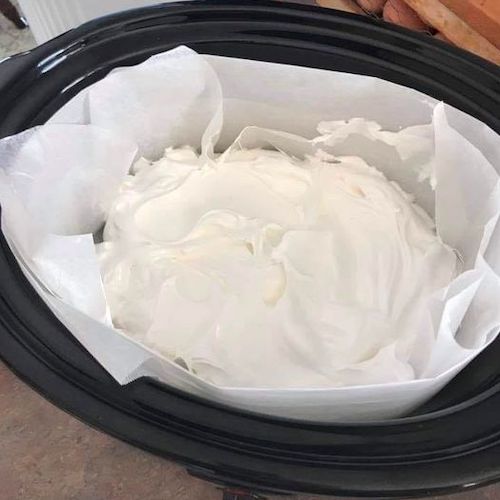Roundup is a popular residential and commercial weed killer made with glyphosate. Farmers, landscapers and agricultural workers have used it since 1974. However, some studies have linked heavy glyphosate use to an increased risk of non-Hodgkin lymphoma and other cancers.
Glyphosate was first registered for use in the United States in 1974 and global use has grown substantially since the introduction of Roundup Ready genetically engineered glyphosate-tolerant crops in 1996. Reports suggest more than 9 million tonnes have been sprayed on fields worldwide in the last 45 years.
And it’s now in our food chain, one study done in 2015 tested people across America for traces of glyphosate, they found that 93 percent tested had traces in their urine, with children having the highest amount. Read about the study here.
Monsanto continues to state that Roundup is not toxic when used correctly, however that is being questioned and evidence revealed in a recent trial against Monsanto included internal records showing discussions of “ghostwriting” scientific papers that asserted the safety of its products (this was the Dewayne Johnson case). There was also evidence of plans to discredit an international agency that declared the main ingredient in Roundup, glyphosate, to be a probable human carcinogen.
What is Roundup?
Roundup is a brand of widely used weed killer, or herbicide, that contains the active ingredient glyphosate. Roundup’s manufacturer, Monsanto, first registered glyphosate in the U.S. in 1974. Bayer bought Monsanto for $66 billion in 2018 and still manufactures Roundup. According to the U.S. Environmental Protection Agency, glyphosate is the most widely used herbicide in commercial agriculture in the U.S. Each year, agricultural workers apply 280 million pounds of glyphosate to 298 million acres, according to a 2019 EPA Report. Roundup has several formulas for residential and commercial use, including liquid concentrate, solid and ready-to-use liquid. Concentrated formulas must be mixed before use. Glyphosate can be applied by aerial spraying, ground spraying, sponge bars, wiper applicators and droplet applicators.
How Does Roundup Work?
Roundup’s active ingredient, glyphosate, works by inhibiting enzymes plants need to grow. It works best in actively growing plants. After a person sprays Roundup on a plant, the plant absorbs the glyphosate into its sap stream. Roundup then travels to the plant’s roots. The herbicide kills the roots, shoots and leaves of the plant. Glyphosate can’t tell the difference between weeds and plants a person wants to keep, and it will kill any plant it touches. For this reason, Roundup should be applied with precision. Some formulas of Roundup begin killing plants in as little as a few hours. In 1996, Monsanto engineered Roundup Ready crops such as corn, soy, cotton and alfalfa. These special crops are resistant to Roundup and don’t die along with weeds. This allowed farmers to spray entire fields with Roundup without fear of losing crops.
LAWSUIT INFORMATION: People who developed non-Hodgkin lymphoma after exposure to Roundup are filing lawsuits.
Is Roundup Safe to Use?
According to the EPA, there are “no risks of concern to human health from current uses of glyphosate” if products are used as directed. Some regulators and critics disagree because other independent studies have linked heavy, long-term Roundup exposure to an increased risk of non-Hodgkin lymphoma and other health issues. According to Bayer, more than 800 studies submitted to the EPA have proven that Roundup has a good safety profile and doesn’t cause cancer.
Contrary to the EPA’s findings, the World Health Organization’s International Agency for Research on Cancer concluded that glyphosate is “probably carcinogenic to humans” based on animal studies. IARC came to this conclusion after it found “strong evidence” that glyphosate may damage cell DNA, and some studies found mice that ate glyphosate developed more tumors, according to reports from NPR.
One review published in the scientific journal Mutation Research by researchers at the University of Washington found people with heavy exposure to glyphosate had a 41% increased risk of developing non-Hodgkin lymphoma compared to those with light or no exposure. As far back as 2015, people who developed non-Hodgkin lymphoma after heavy Roundup use have been filing Roundup cancer lawsuits against Monsanto and other defendants, claiming the company should have warned the public about the risk. In 2020, Bayer offered more than $10 billion dollars to settle 100,000 Roundup lawsuits, but thousands of lawsuits are still pending.
Has Roundup Been Banned?
Despite Roundup’s potential link to cancer, it has not been banned in the U.S. The EPA continues to say its review of available studies does not show that glyphosate has any human health “risks of concern” based on its current uses.
EPA has determined Roundup has:
No risks of concern to human health from current uses of glyphosate.
No indication that children are more sensitive to glyphosate.
No evidence that glyphosate causes cancer in humans.
No indication that glyphosate is an endocrine disruptor.
Bayer has said it will stop selling residential Roundup in 2023 to prevent further lawsuits, but the company maintains Roundup is safe and will continue to sell it commercially.
What Can You Use Instead of Roundup?
A few alternatives to Roundup for controlling weeds include mulch, herbicidal soap, corn gluten meal, vinegar, manually removing weeds and iron-based herbicides. There are also a few brands of organic herbicides that can help control weeds, but they are more effective when weeds are freshly sprouted. Some home recipes for weed killer are made with vinegar and dish soap. Keep in mind, though, that this mixture can be highly toxic if swallowed, so make sure it’s kept away from children and pets.
Please seek the advice of a medical professional before making health care decisions.
Written by Michelle Llamas, BCPA – Board Certified Patient Advocate
Member of American Medical Writers Association (AMWA) and former Engage Committee and Membership Committee member
Centers for Disease Control and Prevention (CDC) Health Literacy certificates
Original works published or cited in The Lancet, British Journal of Clinical Pharmacology and the Journal for Palliative Medicine
Board Certified Patient Advocate, Patient Advocacy Certificate from University of Miami






About The Author: Triona
More posts by Triona